- Trainee Blog
- Elkem’s trainee programme: a unique opportunity
Elkem’s trainee programme: a unique opportunity
Half a year ago, I wrote a blog post about my first trainee period in Elkem, working with and learning about all the mechanical equipment around the smelting furnaces of Elkem Thamshavn. I have now been employed in Elkem for over a year, and it feels a bit sudden that I am already more than halfway through the trainee programme.Taking this chance to look back though, I have already learned a great deal about the industry: installation, use and maintenance of a wide array of machinery; our furnaces and high temperature processes in general; industrial and personal safety; lean thinking and continuous improvement.
My learning has come from both involvement in varied projects and many formal training courses – well over a month of my time employed so far in Elkem has been spent in the classroom. In my current placement, I am using the process engineering and thermodynamics I learned at university quite a bit, but find myself learning even more about project management, process- and biochemistry; regulatory, energy and sustainability issues, as well commercial and business development aspects of our activities.
I am now in my second of three trainee rotations, working at the head office in Oslo in the Core Technology Department. My current mentor, Alf Tore, is director of energy management and special projects in Elkem, which means he is involved in a multitude of projects related to energy efficiency and sustainability. Working for him, I am assigned to three projects:
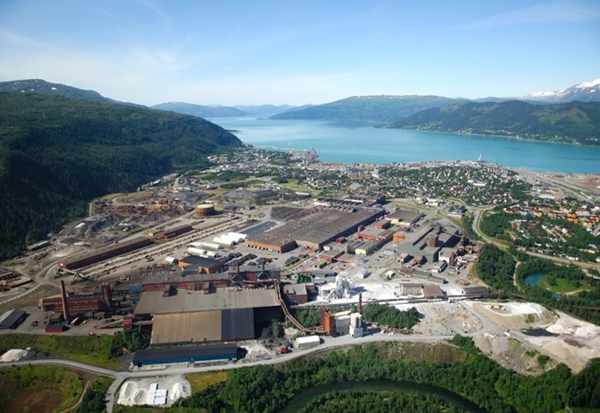
Picture: Elkem Rana, in Mo Industrial Park.
Energy management: Elkem’s newly acquired plant in Mo i Rana is introducing a system for energy management, and I am the project manager for developing this. Through introduction of this system at the plant, our goal is to reduce yearly auxiliary power consumption by 5GWh, equivalent to the consumption of 250-300 Norwegian households. With a project budget of 2 MNOK, it’s an excellent learning experience for me as a recent graduate, working with experienced and dedicated people at the plant.
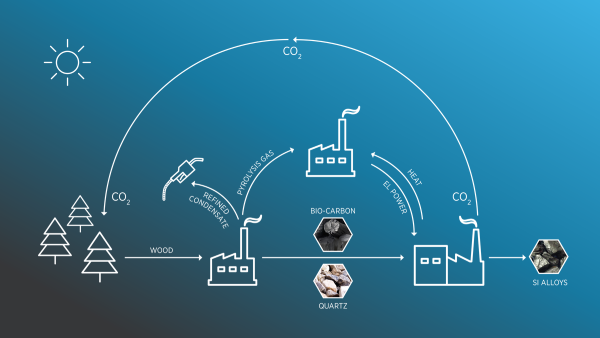
Picture: Elkem’s future: climate and energy neutral metal production.
The PyrOPT and charcoal sourcing projects: Elkem uses hundreds of thousands of tonnes of fossil coal and coke as chemical reductants in our smelting furnaces. However, we have ambitious goals toward a carbon neutral future, by substituting fossil reductants with biocarbon in the form of sustainable charcoal. Complete substitution is an enormous undertaking, and on the road to that future, Elkem has announced goals of using 20% and 40% bio-reductants in Norway by 2021 and 2030, respectively. While biocarbon performs well in the chemical reactions in our furnaces, the main reasons for using fossil materials today are prohibitive costs of, but also challenges related to sustainability of biocarbon. The effects of changing large parts of our raw materials in our furnaces also needs to be studied, and processes and equipment must be adapted accordingly.
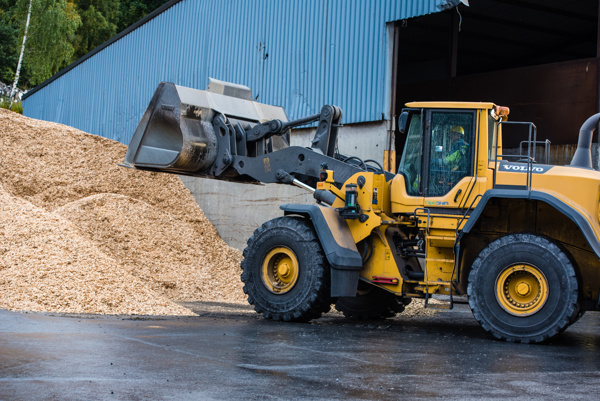
Many of these questions are handled in the PyrOPT project (with the catchy title “Pyrolysis of wood optimized for production of energy and tailor-made biochar for silicon production (PyrOpt)”), in cooperation with SINTEF Energy Research AS and the Paper and Fibre Research Institute. Here, the goal is resource-effective production of high quality charcoal tailored for our furnaces, at competitive cost. Charcoal is produced by heating wood in the absence of oxygen (pyrolysis), which also creates hydrocarbon gases and fluids, and the project also investigates valuable uses of these.
My role so far in the project has been to perform calculations and reviews related to thermodynamics and chemical processes, CO₂ emissions, raw material sources, and theoretical effects on our own processes and products. I was also allowed to join a trip to an overseas technology supplier to observe test production of charcoal. For me as a trainee, this is a perfect learning opportunity both about the industrial processes and theory involved, as well as about business development, raw material sourcing, logistics and product quality.
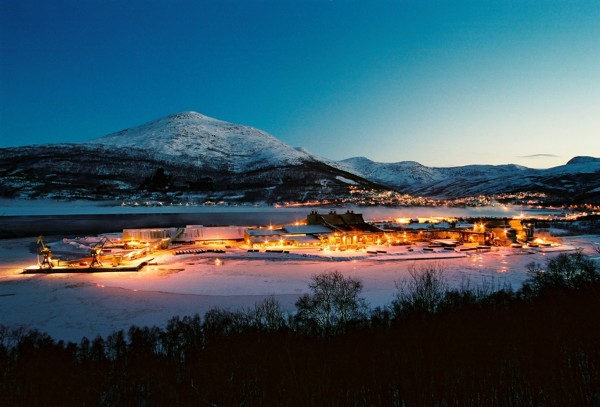
Picture: The Elkem Salten plant.
Energy Recovery at Elkem Salten: Elkem has recently announced plans to build a power plant converting waste heat to approximately 275GWh of electricity yearly. The project will cost around 1 billion NOK, shared between Elkem and a local partner, and with 350 MNOK of support from Enova. The design work around this project is so far mostly handled by specialist consultants, and I am included first and foremost as a learning opportunity, doing some minor calculations while getting a thorough introduction to the project.
In addition to the tasks above, I am grateful to my mentors and colleagues in Elkem for also including me in a variety of ongoing activities they think I might find interesting, and always being eager to share their experience and expertise. When I began this rotation, the manager of my current department sat down with me a few days a week for the first several weeks to give a brief introduction to each of Elkem’s areas of special expertise related to furnace design. It’s a lot to learn! – after around a dozen sessions, we had only scratched the surface of the challenges related to each topic.
If you’ve made it this far in the blog post, I assume you’re quite interested in Elkem. In this case, I’ve got great news for you: if you will have a Master of Science degree in engineering, natural science, or economics/business by August 2018, you can now apply for the trainee programme in Elkem yourself!
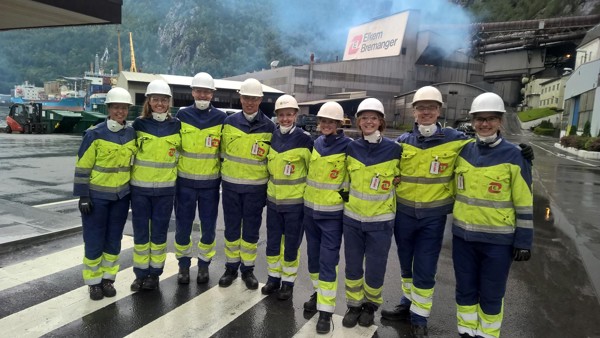
Picture: My third day in Elkem, visiting Elkem Bremanger.
If you’re considering it, I can recommend it highly. There has been a trainee programme in Elkem for decades, and my experience as a trainee is that there is a lot of goodwill and support towards trainees from all levels of the organization, which is a large part of what makes it such a unique opportunity. One thing I especially want to highlight, is that the first written responsibility in my formal job description is to ensure learning, and to build my own competence as much as possible during my time as a trainee. While all ongoing projects we can take part in improve EHS and/or commercial value in Elkem, it feels a bit selfish to be prioritizing tasks based on how much I can learn from them personally. The rationale for spending so much resources on a trainee is that it’s an investment in people that will hopefully have long careers in the company (and I have met many former trainees in all kinds of positions throughout Elkem). I have to admit it feels weird at times to be paid for some of the excellent learning experiences I’m having, but I promise that if you become one of next year’s trainees, you’ll get used to it 😉
The deadlines for applying are November 5th for the technical trainee programme, and October 22nd for the Business Analyst programme.